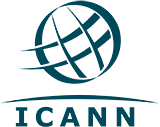Cloud Servers: Cloud servers are an internet-based computing infrastructure that allows businesses and users to access computing resources over the internet. Instead of having local physical servers, companies rent computing resources in the cloud, providing them with flexibility and scalability. Some key features of cloud servers include:
- Virtualization: Cloud servers use virtualization technology to partition a physical server into multiple virtual machines (VMs). This enables multiple clients to securely and independently share the hardware resources of a single physical server.
- Scalability: One of the main advantages of the cloud is the ability to scale vertically (increasing the capacity of a single instance) or horizontally (adding more instances) based on workload demands. This allows businesses to easily adapt to fluctuating demands without incurring excessive costs.
- Pay-as-you-go: With cloud services, clients pay only for the resources they consume. This allows for a more flexible pricing structure compared to dedicated servers, as no significant upfront investment is required.
- Redundancy and High Availability: Cloud service providers typically offer multiple geographically distributed data centers to ensure high availability and fault tolerance. If one data center fails, services are automatically migrated to another active center.
- Easy Management: Cloud server administration and maintenance are generally more straightforward as many technical aspects, such as hardware management, are handled by the cloud provider.
Examples of popular cloud service providers are Amazon Web Services (AWS), Microsoft Azure, Google Cloud Platform (GCP), among others.
Dedicated Servers: Dedicated servers are full physical servers used exclusively for a single client or business. Unlike cloud servers, dedicated servers are not shared with other users, providing greater control and customization over hardware and software. Some features of dedicated servers include:
- Consistent Performance: By not sharing resources with other users, dedicated servers offer more consistent and predictable performance, making them ideal for applications and workloads that require high processing power.
- Privacy and Security: Since they are exclusively used by one client, dedicated servers offer a higher level of privacy and security compared to shared cloud servers.
- Customization: Clients can choose and configure the infrastructure according to their specific needs, including hardware, operating system, and applications.
- Full Control: Clients have full administrative access to the server, allowing them to control all aspects of it.
- Fixed Costs: Unlike consumption-based billing in the cloud, dedicated servers generally involve fixed costs, which can be beneficial for stable and predictable workloads.
However, dedicated servers also have some drawbacks, such as the need for more extensive maintenance and the lack of the same scalability provided by cloud services.
In summary, cloud servers are an excellent choice for those seeking flexibility, scalability, and minimal physical hardware maintenance, while dedicated servers are ideal when specific performance and control are required, and the company has more stable and defined needs.














